CASELOAD 2019 – CRCICA Records Second Highest Number of Cases
The total number of cases filed before CRCICA until 31 December 2019 reached 1385 cases. In 2019, 82 new cases were filed, compared to 77 and 65 in 2018 and 2017 respectively. This is the second highest number of registered cases in CRCICA’s history. Further, 3 mediation cases were registered in 2019 compared to 2 in 2018.
The Centre’s caseload during 2019 involved disputes relating to various sectors including: Oil & Gas, Construction, Real Estate Development, Retail, Media & Entertainment, Tourism & Hospitality, Pharmaceutical, IT & Telecommunications, International Sale of Goods and Public Private Partnership.

Disputes arising from the Oil & Gas Sector ranked on top with 30% of the total number of cases, compared to 12% of the cases in 2018. Unlike in 2018, these were followed by disputes arising from the Construction Sector, which made up nearly 20% of the total number of cases. Real Estate Development cases and Retail related disputes tied for third in 2019, representing nearly 10% of disputes each, closely followed by disputes arising out of Tourism & Hospitality and those relating to Media & Entertainment and the Pharmaceutical Industry.
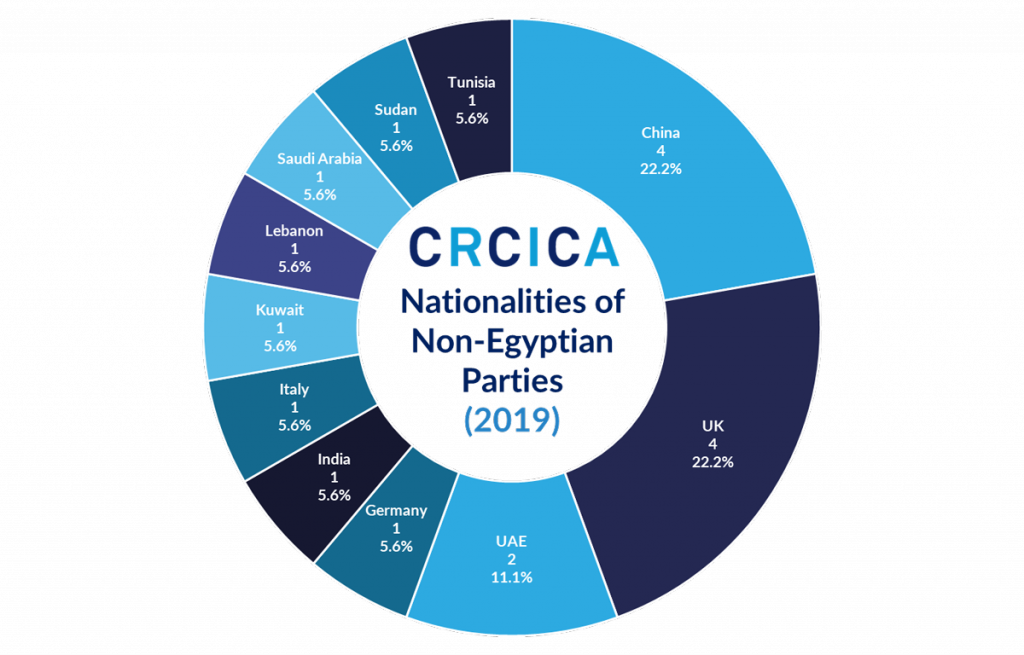
The parties to disputes included 18 Non-Egyptian parties. Parties from China and the UK tied at the top of Non-Egyptian parties referring their disputes to the Centre, with 4 parties each, followed by parties from the UAE. There were also parties from Germany, India, Italy, Kuwait, Lebanon, Saudi Arabia and Tunisia. It is worth noting that these conservative figures do not include Egyptian companies owned or ultimately controlled by non-Egyptian shareholders.
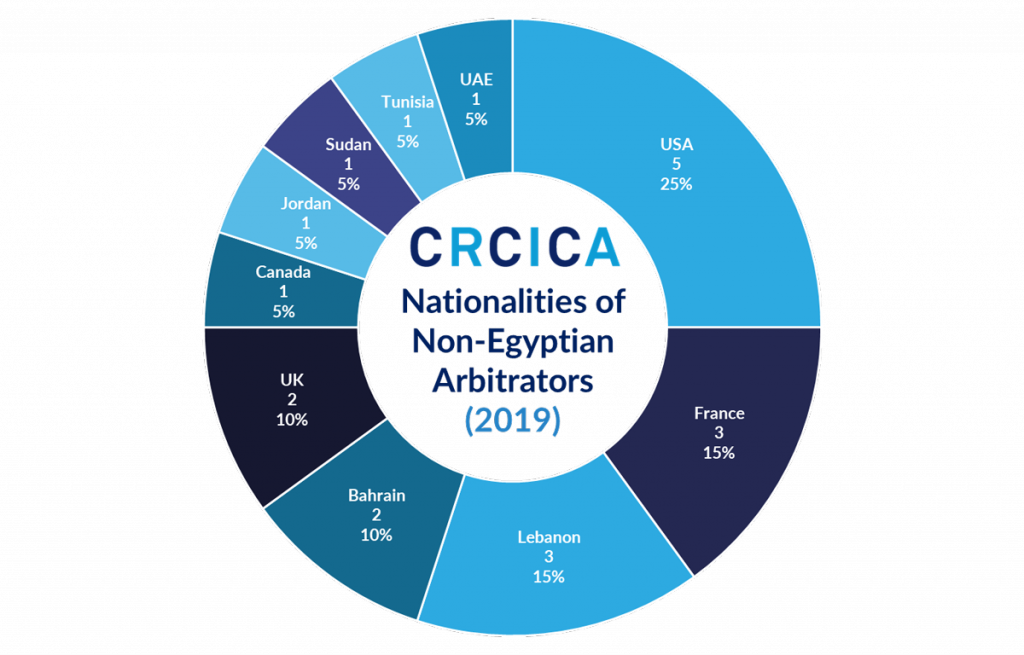
2018 also witnessed the appointment of 20 Non-Egyptian arbitrators, with the number of arbitrators coming from the US coming at the top, followed by arbitrators coming from Lebanon, France, Bahrain and UK. There were also arbitrators from Canada, Jordan, Sudan, Tunisia and UAE.
In 2017, the CRCICA signed the Pledge for Equal Representation in Arbitration, according to which the CRCICA, having due regard to the circumstances of the relevant case, implemented a gender diversity policy when acting as an appointing authority in addition to its implementation of a regional and age diversity policy.
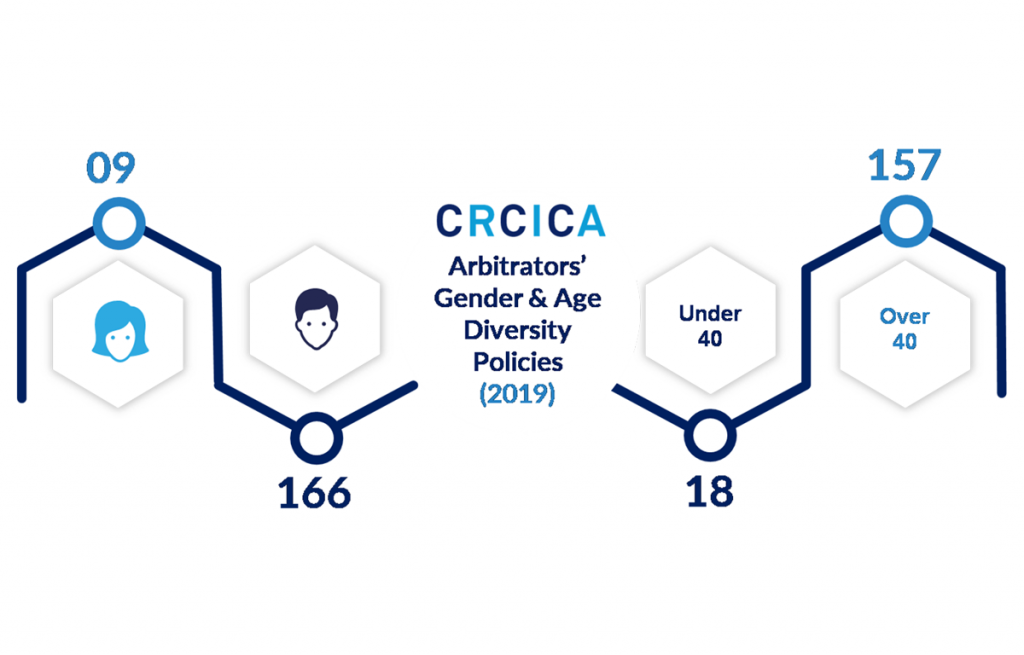
During 2019, 9 female arbitrators were appointed, representing 5% of appointments, compared to 11 female arbitrators in cases registered in 2018. Moreover, 18 arbitrators under 40 were appointed in 2019, representing 10% of appointments, compared to 13 arbitrators under 40 appointed in cases registered in 2018.
These numbers and percentages, though both still modest, show a tendency to increase female appointments by the CRCICA as well as by parties and co-arbitrators.
Of the 175 arbitrators appointed in 2019, only 19 were appointed by the Centre, representing just under 11% of all appointments. In exercising its power as appointing authority, the Centre took the opportunity to appoint 4 non-Egyptian arbitrators, as well as 1 female arbitrator and 2 arbitrators under 40.
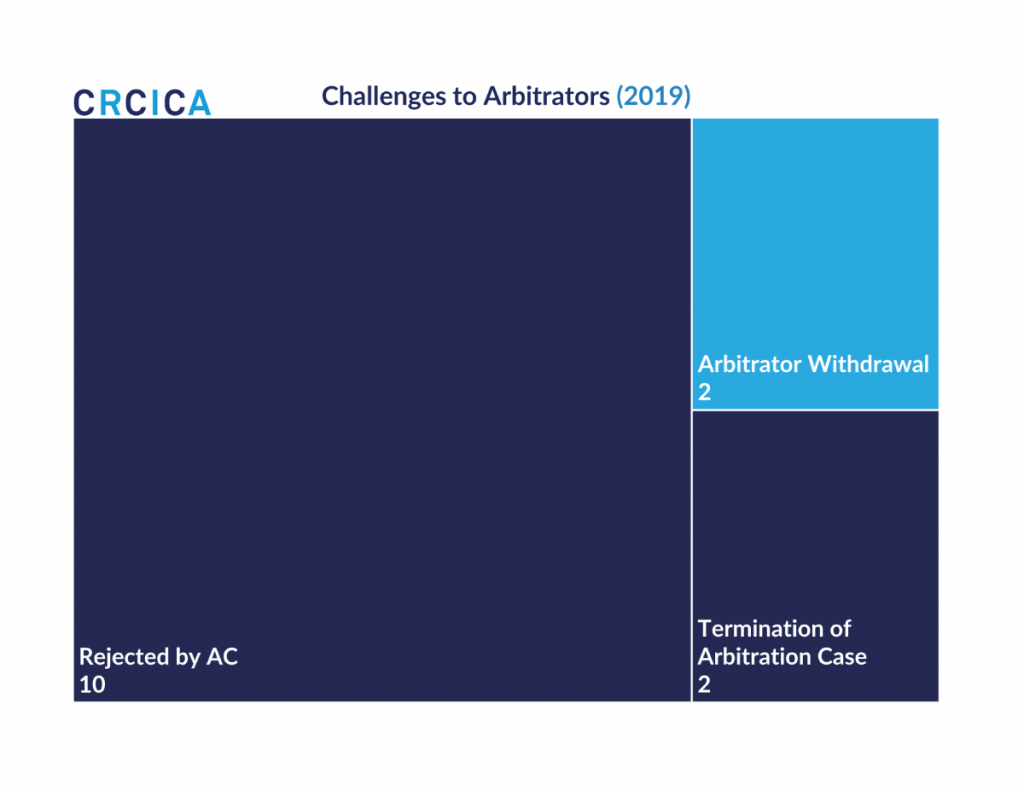
During 2019, parties brought challenges against 14 arbitrators. All 10 challenges that were brought before an ad hoc tripartite committee formed by members of the advisory committee were rejected. As for the remaining 4 challenges, they were not brought before an ad hoc tripartite committee for various reasons, including the resignation of the challenged arbitrator and the amicable settlement of the arbitration case before the challenge was decided by the Tripartite Committee.
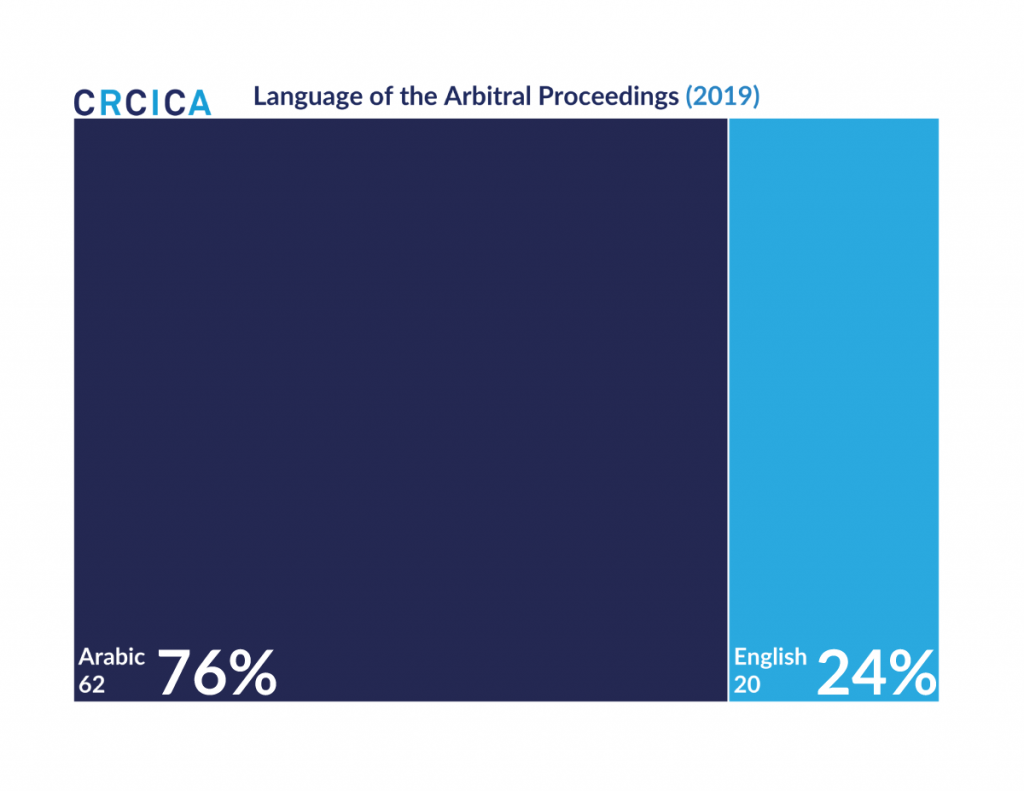
In 2019, 62 arbitration cases were conducted in Arabic, (i.e. 76%), whereas 20, (i.e. 24%), were conducted in English. The French version of the CRCICA Rules has been issued on 31 March 2017.
The total number of mediations filed before CRCICA until 31 December 2019 reached 14 cases. In 2019, 3 new cases were filed, compared to 2 cases filed in 2018.
The first case was based on a multi-tiered dispute resolution clause, which required the parties to participate in mediation under CRCICA Rules prior to initiating arbitral proceedings. The dispute involved a consultancy agreement between a German consulting firm and an Egyptian manufacturer. The mediation process ended with a settlement being reached by the parties.
The second case was based on another multi-tiered dispute resolution clause, one which required parties to participate in mediation generally prior to initiating arbitral proceedings. The dispute involved a commercial agency agreement between a Swiss company and an Egyptian agent.
The third case was based on a multi-tiered dispute resolution clause, which required the parties to participate in mediation under CRCICA Rules prior to initiating arbitral proceedings. The dispute involved a consultancy agreement between an Egyptian real estate developer and an Egyptian consulting firm.
HEARINGS IN 2019
Throughout this year 116 hearings took place at CRCICA’s hearing facilities. 103 of the hearings related to cases brought under the CRCICA Arbitration Rules, 7 hearings related to ad hoc cases administered by CRCICA, and 2 hearings related to cases brought under the ICC Rules. There was also a hearing related to a mediation case under CRCICA Mediation Rules and 1 hearing related to an investment case under the UNCITRAL Rules, brought by an investor against an Arab state.
CRCICA hosted several witnesses to testify remotely to the ICC in Paris, using live feed of proceedings (i.e. video conferencing to visualize the hearing room), real time viewer (i.e. live testimony immediately appears on your computer screen as the court reporter writes real-time), and using Opus 2 Magnum electronic bundle solution and by printing and organizing witness’ binders. Of the 103 hearings related to cases brought under CRCICA Arbitration Rules, 2 procedural hearings were conducted via conference call.
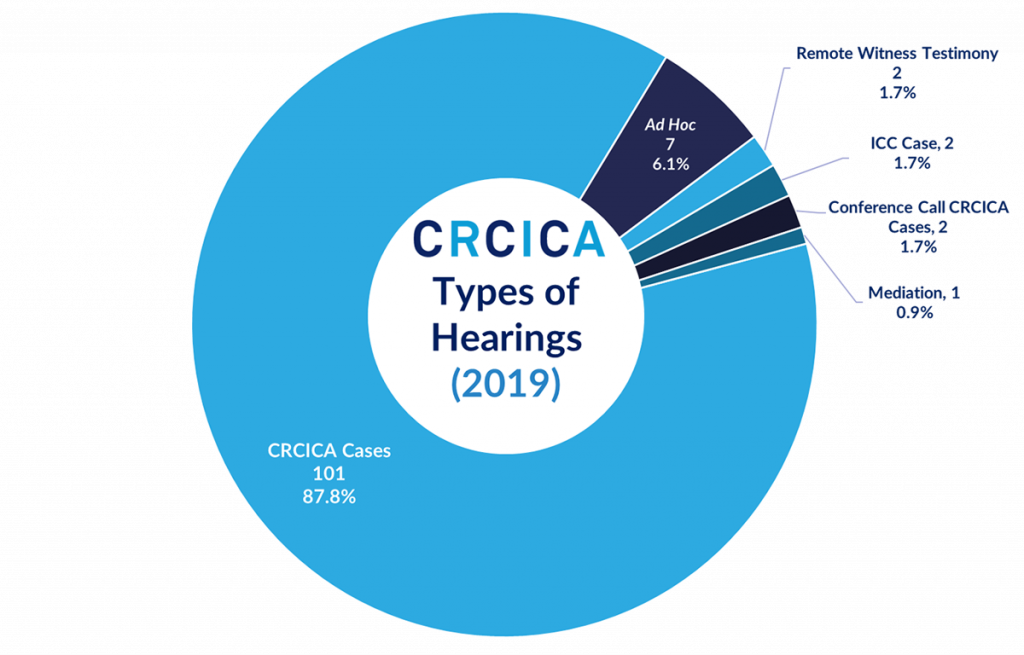



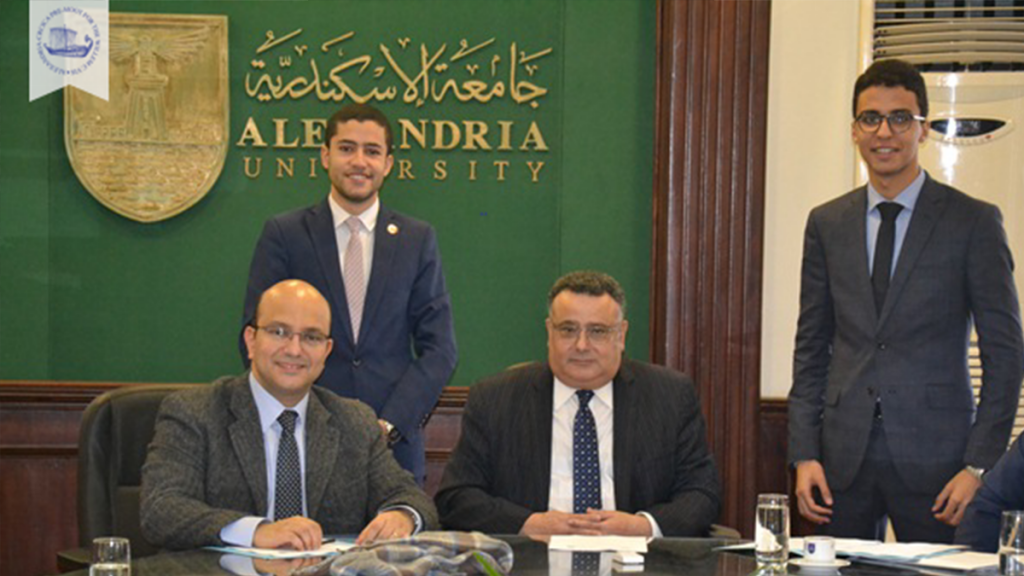


Leave a Reply